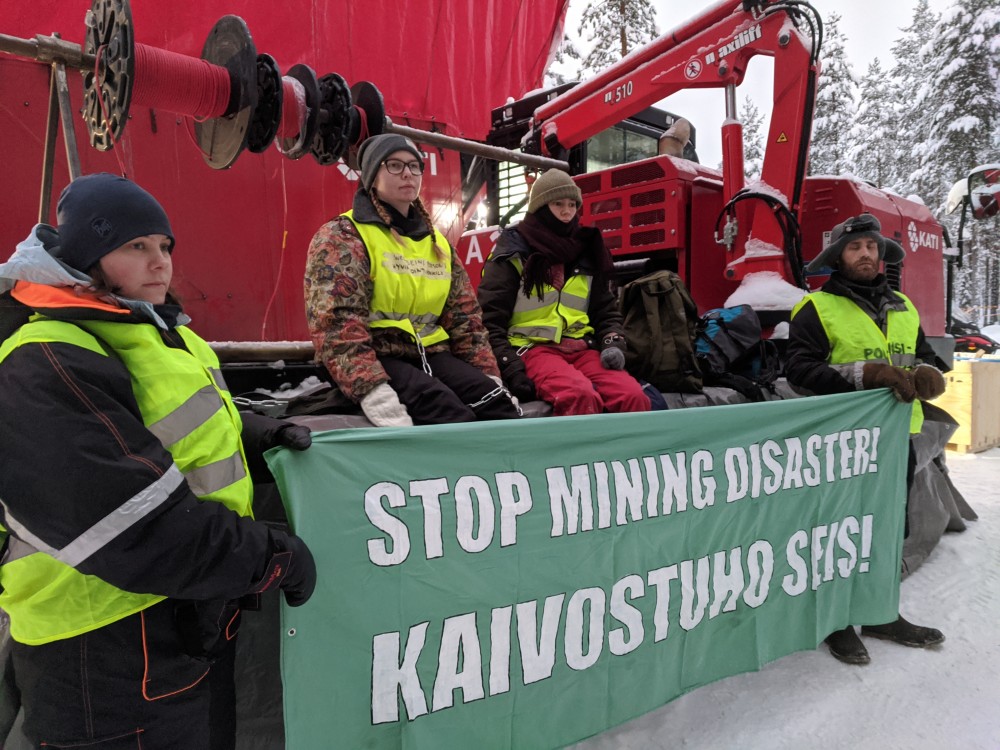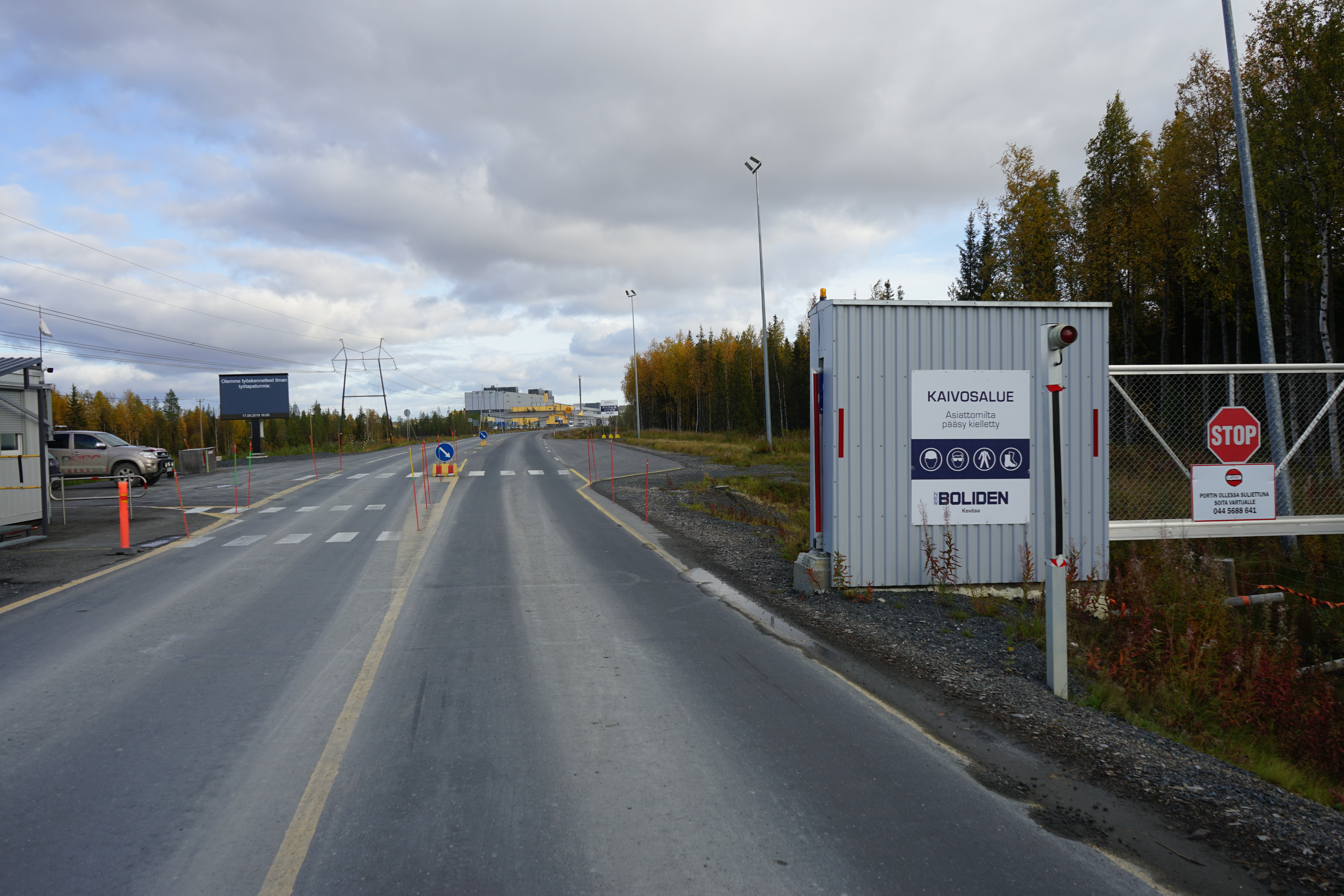Lapland activists block mining survey

Viiankiaava is a well-known protected swamp area north of Sodankylä in Lapland, some 120 kilometers inside the Arctic Circle.
Waders, wood sandpipers and willow warblers are some of the birds nesting in the area. By law, human activity is limited to bushwalking and picking berries. Disturbing animals or moving stones and plants are banned.
For Sakatti Mining Oy, a Finnish subsidiary of the giant Anglo American mining company, potential mining will for environmental reasons take place deep underground with no surface installations inside the nature reserve.
Current test borings aimed to estimate the potential for metals, however, are carried out from a rig on the earth’s surface.
“I think it’s outrageous that even protected areas are not safe from mining companies,” says Tipa Lilja, one of the four activists with Elokapina—Extinction Rebellion Finland that blocked the drilling rig on Tuesday.
The group argues that underground exploration here could threaten to dry up the marshland above the mining tunnels.
“Groundwater will leak into the tunnels, drying up the groundwater in the entire swamp area,” the group states and points to similar incidents at the Kaunisvaara iron ore mine in northern Sweden.

Sakatti Mining has valid permits to drill the rocks during this winter season both inside and outside the boundaries of the protected area.
The company describes Viiankiaapa as a rich multi-metal deposit with “excellent exploration potential for metals of the future.”
The environmentalists warn locals against wordings about big money and bright prosperities.
“They promise work and livelihood, but most of the profits will in reality go abroad and the disadvantages will remain on the account of the locals forever,” Tipa Lilja says.
Political pressure to find climate solutions from inside Europe doesn’t make it easier for the environmentalists to protest the mining plans.
Battery producers supplying carmakers like VW, Nissan, Hyundai and Tesla are already rushing to secure as much raw materials as possible. Metal prices are skyrocketing, making mining companies even more eager to explore new areas. Electrification of the transport sector and renewable energy production are key to slow down the global climate crisis. But it all comes with a price: Mining. Big mining.
In that regard, northern Scandinavia proves very promising.
Located in Kirkenes, Norway, just a few kilometres from the borders to Russia and Finland, the Barents Observer is dedicated to cross-border journalism in Scandinavia, Russia and the wider Arctic.
As a non-profit stock company that is fully owned by its reporters, its editorial decisions are free of regional, national or private-sector influence. It has been a partner to ABJ and its predecessors since 2016.